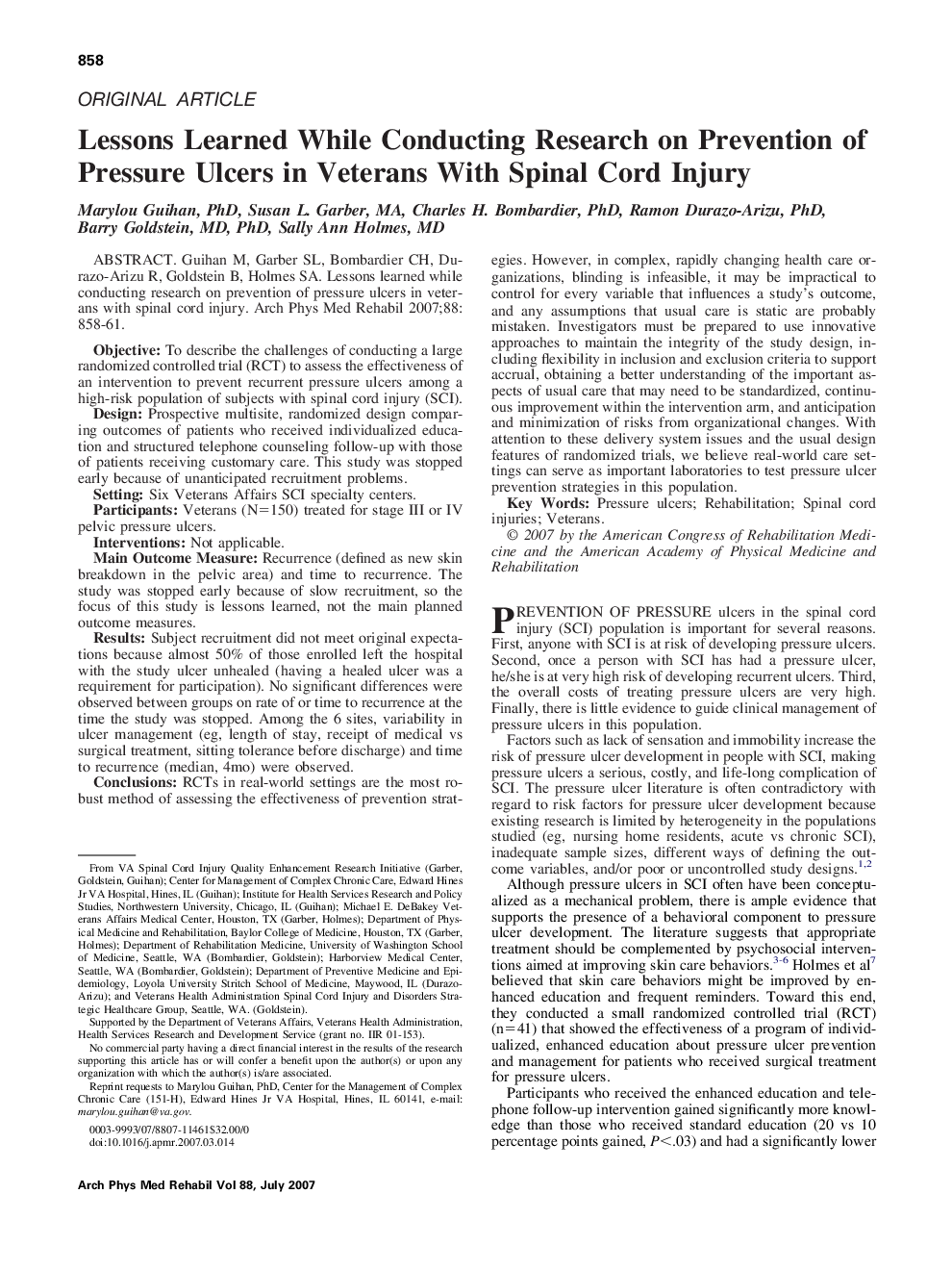| Article ID | Journal | Published Year | Pages | File Type |
|---|---|---|---|---|
| 3451182 | Archives of Physical Medicine and Rehabilitation | 2007 | 4 Pages |
Abstract
RCTs in real-world settings are the most robust method of assessing the effectiveness of prevention strategies. However, in complex, rapidly changing health care organizations, blinding is infeasible, it may be impractical to control for every variable that influences a study's outcome, and any assumptions that usual care is static are probably mistaken. Investigators must be prepared to use innovative approaches to maintain the integrity of the study design, including flexibility in inclusion and exclusion criteria to support accrual, obtaining a better understanding of the important aspects of usual care that may need to be standardized, continuous improvement within the intervention arm, and anticipation and minimization of risks from organizational changes. With attention to these delivery system issues and the usual design features of randomized trials, we believe real-world care settings can serve as important laboratories to test pressure ulcer prevention strategies in this population.
Related Topics
Health Sciences
Medicine and Dentistry
Medicine and Dentistry (General)
Authors
Marylou PhD, Susan L. MA, Charles H. PhD, Ramon PhD, Barry MD, PhD, Sally Ann MD,
